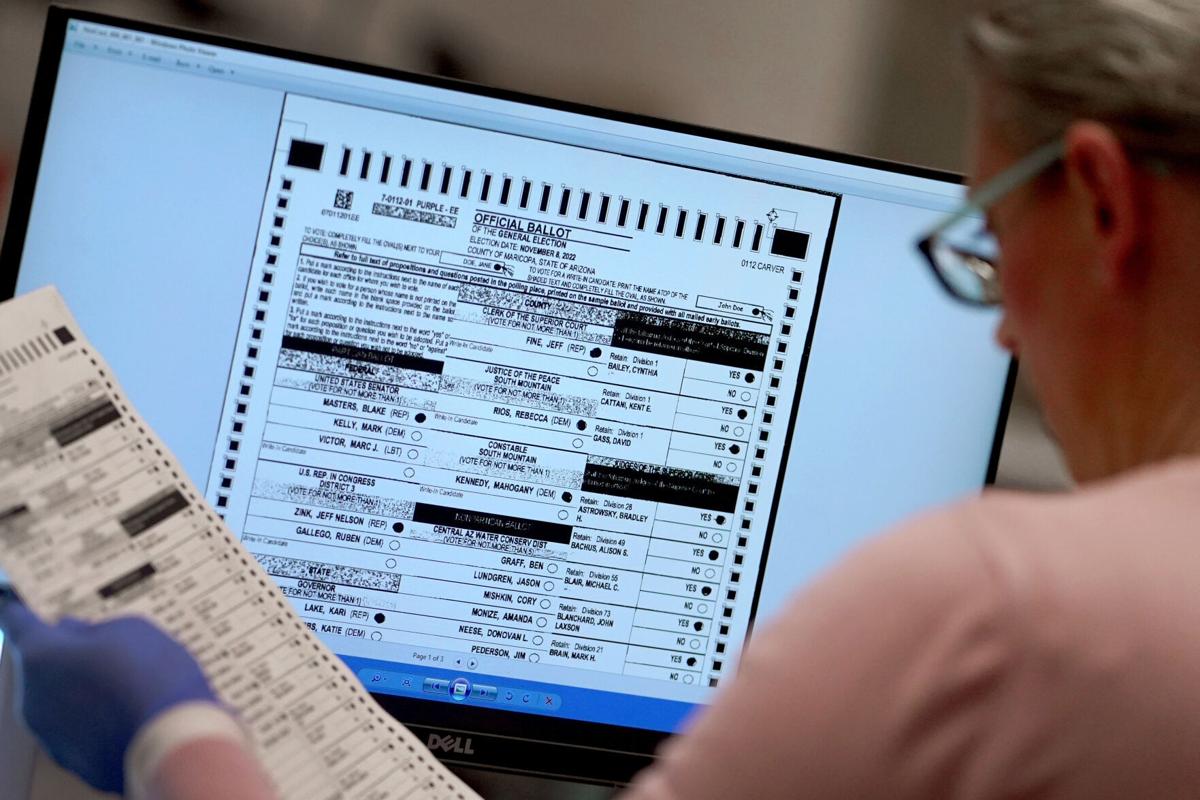Capitol Media Services
PHOENIX — The state’s high court has tossed out a bid to void the results of the entire 2022 election.
In a brief order Thursday, the court threw out Scottsdale attorney Ryan Heath’s request that they order Maricopa County to redo the process it used to verify signatures on early ballot envelopes. They noted that Heath, representing a client named David Mast and Cochise County Supervisor Tom Crosby, cited evidence that was introduced earlier this year in a challenge to the election results raised by failed Republican gubernatorial hopeful Kari Lake.
Maricopa County Superior Court Judge Peter Thompson already ruled in May that “there is clear and convincing evidence that the elections process for the Nov. 8, 2022 general election did comply’’ with the law, said the XXX order issued by a majority of the justices.
They also said that only those who were involved in the original lawsuit have the legal right to appeal the trial court’s decision. And while Lake is still challenging some aspects of what Thompson ruled about the signature verification process, she never raised the specific issue being pushed now for Mast and Crosby by Heath, a Lake supporter.
That leaves the new challengers without a legal avenue for review. Even if that were not the case, the justices said Heath’s attempt to take his case directly to them is flawed in other ways.
First, they said, the kind of legal relief he is seeking from them — an order to redo the 2022 election or at least revisit the ballots — is only appropriate when there are no facts in dispute. That’s not the case here, they said.
Nor were the justices impressed by his explanation of why he did not file his case in Superior Court but instead asked to skip the line and go directly to the state’s top court.
Heath argued that going through the regular process “would add months of litigation and unnecessary expenses for both plaintiffs and defendants.’’ But the justices noted that he waited nine months after the general election to file suit.
There was no immediate response from Heath on whether he will try to take his case to a trial judge.
At issue is the signature verification process used by Maricopa County.
In the case of Lake’s challenge, she argued there was no way for the county to have verified as many signatures on early ballots as it did in the amount of time spent. She said about 274,000 signatures were compared on computer screens in less than three seconds, with about 70,000 in two seconds or less.
Thompson called that irrelevant. “There is no statutory or regulatory requirement that a specific amount of time be applied to review any given signature at any level of review,’’ the judge ruled.
Heath tried a different legal theory.
He contends it was illegal for Maricopa County to verify signatures on early ballots by comparing them with images from prior early ballots. Heath argues that Arizona law requires comparisons to be with the person’s original voter signature.
Meanwhile, the website for Heath’s law firm is soliciting clients for a yet-to-be-filed claim that they were disenfranchised on Election Day because they could not cast a ballot due to problems with on-site printers.
Maricopa County officials contend — and, so far, courts have ruled — that no one was disenfranchised because voters whose ballots could not be read on site had the option to place them in a sealed drawer to be tabulated later at a central location.
Get your morning recap of today's local news and read the full stories here: http://tucne.ws/morning





